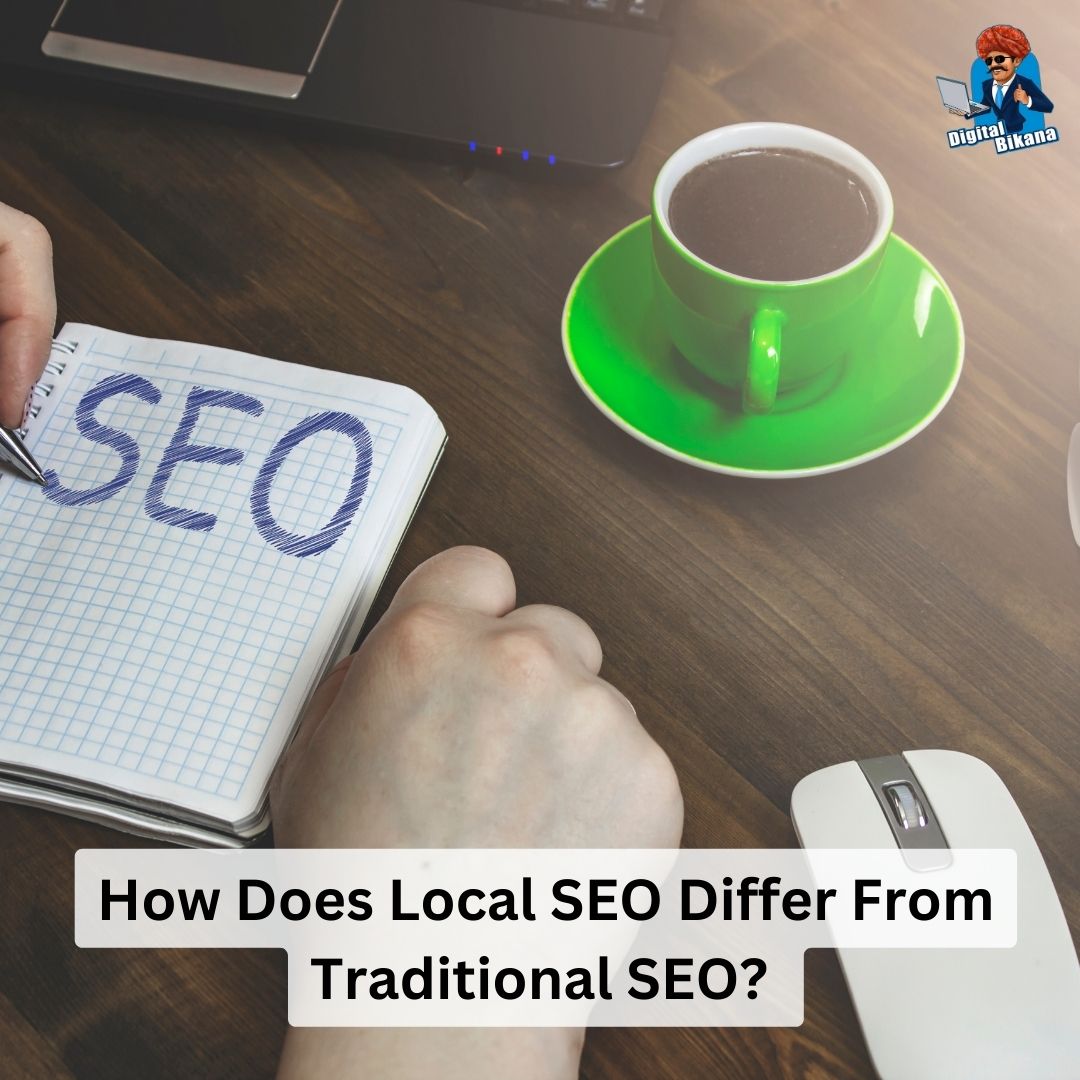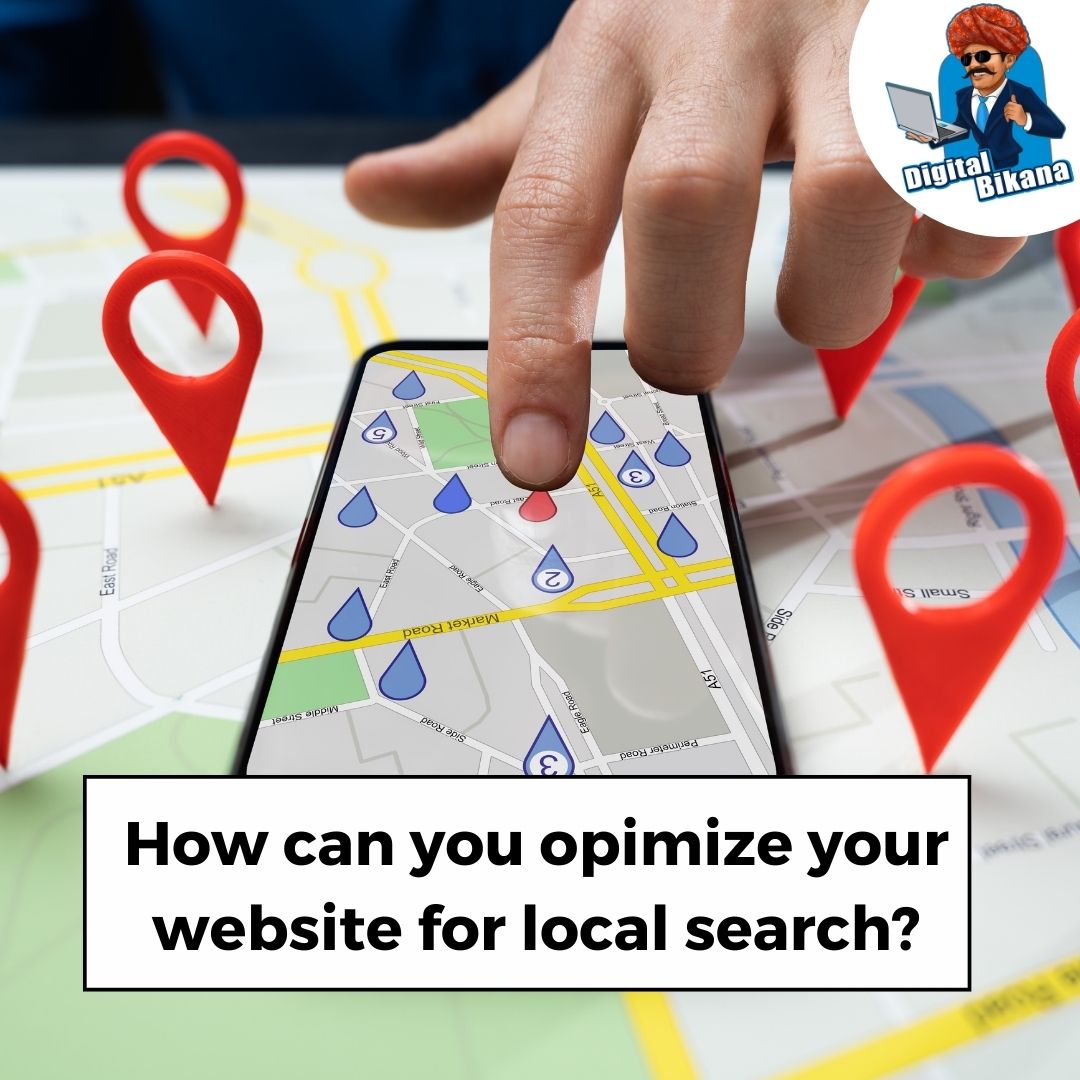How does Local SEO differ from Traditional SEO?
In this article we are going to discuss how does Local SEO differ from Traditional SEO? In the world of search engine optimization (SEO), two distinct approaches emerge when it comes to targeting audiences: local SEO and traditional SEO. While both strategies aim to improve website visibility and attract organic traffic, they diverge in their core focus and methodologies.
How does Local SEO differ from Traditional SEO?
This article aims to shed light on the key differences between local SEO and traditional SEO, emphasizing their unique characteristics, benefits, and best practices.
1. The Scope of Targeting
Local SEO
Local SEO centers around optimizing a website to rank prominently in local search results. Its primary objective is to connect businesses with nearby customers who are actively seeking local products or services. The geographical focus of local SEO allows businesses to target specific regions, cities, or even neighborhoods.
Traditional SEO
On the other hand, traditional SEO adopts a broader scope, targeting a wider audience without specific geographical constraints. It aims to improve organic search visibility on a national or global scale, casting a wider net to capture a larger pool of potential customers.
Read Also: What is a Sitemap and Why is it Important for SEO?
2. Keyword Strategy
Local SEO
Local SEO heavily relies on localized keyword targeting. This involves incorporating location-specific keywords, such as city names, neighborhood references, or other relevant geographical terms. By optimizing content with these local keywords, businesses can increase their visibility in local search results and attract customers who are specifically looking for nearby offerings.

Traditional SEO
Traditional SEO typically employs a broader keyword strategy. It focuses on optimizing content with keywords that have a higher search volume and may not necessarily include specific geographical modifiers. The goal is to rank well in organic search results for relevant topics or industry-specific keywords, regardless of the user’s location.
Read Also: How to Optimize your Website for Long Tail Keywords?
3. Google My Business and Local Directories
Local SEO
An integral component of local SEO is optimizing Google My Business (GMB) profiles and listings on local directories. GMB is a free tool provided by Google that allows businesses to manage their online presence, including contact information, business hours, customer reviews, and map listings. Local directories play a significant role in local SEO as well, with businesses ensuring their consistent presence and accurate information across relevant directories.
Read Also: How to add Business on Google My Business?
Traditional SEO
In traditional SEO, the focus is less on GMB profiles and local directories. While general business directories and industry-specific listings might still be beneficial for traditional SEO, the emphasis is not as pronounced as in local SEO.
4. Local Citations and Backlinks
Local SEO
Building local citations and acquiring backlinks from locally relevant websites are key tactics in local SEO. Local citations are when a business’s name, address, and phone number (NAP) are mentioned on various websites, directories, and platforms online. It’s like having your business details mentioned or listed in different places across the internet. These citations help people find and contact the business easily. These citations contribute to the business’s local authority and credibility, positively influencing local search rankings.
Read Also: How to Optimize your Website for Local Directories and Citations?
Traditional SEO
Traditional SEO also emphasizes the importance of backlinks. However, in traditional SEO, the focus is more on acquiring high-quality backlinks from authoritative websites across a broader spectrum, without the specific requirement for local relevance.
5. Reviews and Reputation Management
Local SEO
Online reviews and reputation management play a significant role in local SEO. Positive reviews and ratings from local customers help businesses build trust, improve local search rankings, and attract more customers. Managing online reviews, encouraging customer feedback, and addressing concerns become critical components of local SEO strategies.
Traditional SEO
While online reviews and reputation management are essential in traditional SEO, the emphasis may be less localized. Traditional SEO aims to build a positive reputation and garner reviews from customers on a broader scale, without the specific focus on the local customer base.
6. Content Localization
Local SEO
Content localization is a key aspect of local SEO. It involves creating location-specific content, including landing pages, blog posts, and other resources tailored to address the specific needs, preferences, and interests of the local audience. By addressing local topics, events, and trends, businesses can establish themselves as relevant and valuable resources for the local community.

Traditional SEO
While traditional SEO does not require the same level of content localization, businesses still strive to create high-quality and valuable content to attract a wider audience. The focus is on industry-specific topics, trends, and general interests that resonate with a broader set of users.
You can also checkout this digital marketing institute to learn digital marketing course by enrolling in our course Or Contact Digital Bikana on +91-8949483728
Conclusion:
In summary, local SEO and traditional SEO differ in their scope, keyword strategies, focus on local directories and citations, emphasis on online reviews and reputation management, content localization, and target audience. Local SEO is specifically designed to target a local customer base, whereas traditional SEO adopts a broader approach to capture a wider audience. By understanding these distinctions, businesses can develop tailored strategies and optimize their online presence accordingly, maximizing their visibility and attracting the right customers in their specific target markets. So, Now I hope you have understood about How does Local SEO differ from Traditional SEO?




